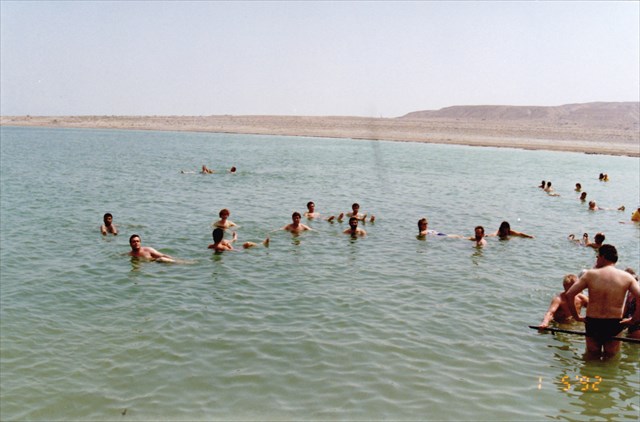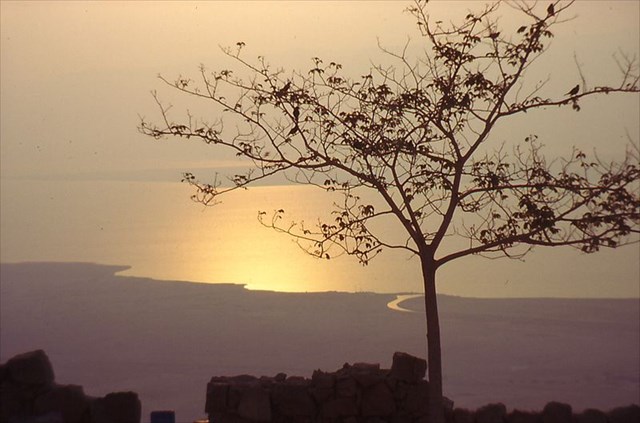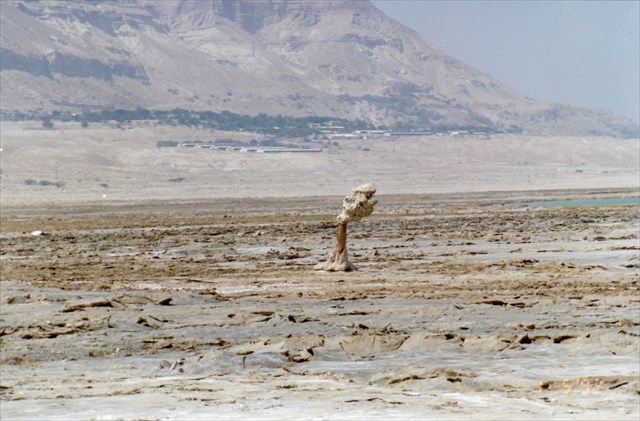
The Dead Sea is, without doubt, one of the most fantastic places in the world and worth visiting.
 Created by the same movement of tectonic plates that several million years ago formed the Great Rift Valley in Africa, the Dead Sea - the name by which it is known since the 2nd century AD - owes its current precarious state to both human and geological factors. First part of a much larger lake that stretched to the Sea of Galilee in the north, he lost his connection with the Mediterranean about 18,000 years ago - the passage of water evaporated, leaving a residue of salt in a bowl in the largest desert depression of the earth, 395 meters below sea level.
Created by the same movement of tectonic plates that several million years ago formed the Great Rift Valley in Africa, the Dead Sea - the name by which it is known since the 2nd century AD - owes its current precarious state to both human and geological factors. First part of a much larger lake that stretched to the Sea of Galilee in the north, he lost his connection with the Mediterranean about 18,000 years ago - the passage of water evaporated, leaving a residue of salt in a bowl in the largest desert depression of the earth, 395 meters below sea level.
The Dead Sea is flanked by mountains in the east and by the rolling hills of Jerusalem in the west, giving it a beauty out of this world.
This region - the Jordan Rift Valley - has a beautiful and dramatic landscape that, near the Dead Sea, is located more than 420 m below sea level.
 This vast expanse of water is the lowest point on Earth's land surface above water and has several rivers that flow into it, including the Jordan River.
This vast expanse of water is the lowest point on Earth's land surface above water and has several rivers that flow into it, including the Jordan River.
Once the waters reach the Dead Sea, are closed with soil around them and cannot escape, so it evaporates, leaving behind a dense and rich mixture of salts and minerals that provide the industry, agriculture and medicine some of its best products.
Why is the Dead Sea so Salty?
 All roads lead to the Sea when it comes to the rivers in the area.
All roads lead to the Sea when it comes to the rivers in the area.
The Dead Sea is continually fed water from the rivers and streams coming down off the mountains that surround it. But the kicker is this....no rivers drain out of the Dead Sea. The only way water gets out of the Sea is through evaporation.
And boy does it evaporate!
This part of the world gets plenty hot. When the water evaporates, it leaves behind all the dissolved minerals in the Sea, just making it saltier. In fact, it's through the dual action of; 1) continuing evaporation and 2) minerals salts carried into the Dead Sea from the local rivers, which makes the Sea so salty. The fact that the water doesn't escape the Sea just traps the salts within its shores.
The sea is called "dead" because its high salinity prevents macroscopic aquatic organisms, such as fish and aquatic plants, from living in it, though minuscule quantities of bacteria, microbial fungi and some algae are present.
On the other hand, this large amount of salt prevents the body from sinking - one of the curiosities that attract tourists to the region.
The sea has a density of 1.24 kg/L, which makes swimming similar to floating.

The Cache
In order to log this cache you will have to send us an email with the answer the following questions:
- Observe the banks of the Dead Sea. You will find that the sea receded in recent years.
The shoreline retreated so much that in some places tourists find it difficult to reach the sea. Dry areas were created and others become impassable mud.
Since its creation, the Dead Sea had been keeping his balance by means of a fragile natural cycle: receiving fresh water from the Jordan River and other small streams originating in the surrounding mountains, and lost by evaporation.
However, in the past 50 years the Dead Sea has lost a third of its surface and, if no measure is adopted, could disappear by mid-century.
Therefore it is said that the Dead Sea is dying.
In your opinion, what happened in the past 50 years to radically alter this fragile natural cycle?
- Observe the area around GZ and describes some situations that, in your view, contribute to this change of the natural balance of the Dead Sea.
- Optional: Attach a photo of your GPS (where we can see the altitude at GZ) and the Dead Sea.